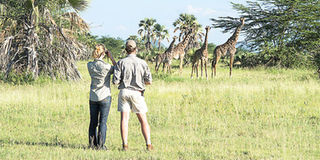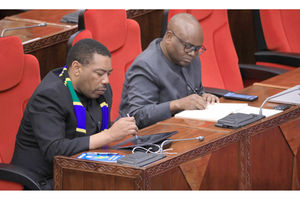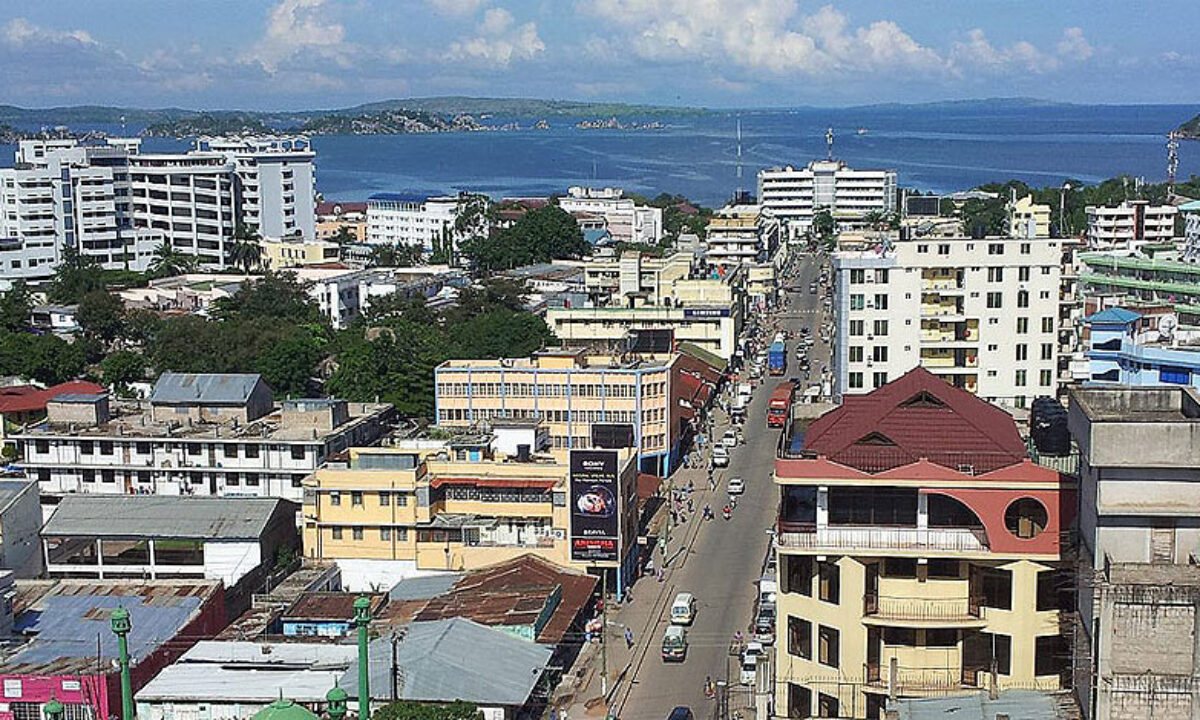We’re sidelined in levy setting, say tour agents

Tourists view animals in one of the national parks. Tourism stakeholders want a one-stop centre for collecting levies. PHOTO | FILE
What you need to know:
We want one-stop centre for managing tourism levies. Duplication of authorities for charging tourism levies cause embarrassment to tourism dealers and tourists. The growth of tourism has also been hampered by this problem
Dar es Salaam. For a long time, tourism stakeholders have been complaining of a chain of taxes that they need to comply in Tanzania.
At one point, one operator commented that they spend more time in complying with the taxes and other regulatory issues than doing the business itself.
Now, the tourism stakeholders are demanding a one stop centre responsible for collecting tourism levies to create a conducive tourism business environment.
Speaking with BusinessWeek, Chief Executive Officer of Tanzania Association of Tour Operators (Tato), Mr Sirili Akko, says that tourism stakeholders are being sidelined when it comes to the process of formulating new tourism levies by the responsible ministry and local governments.
“When the government imposes tourism development levy in any financial year, there is no prior consultation with stakeholders. There is also a problem of allowing local governments to impose tourism levies, which again there is no consultation with stakeholders,” says Mr Akko.
“We want a one-stop centre for managing tourism levies. Duplication of authorities for charging tourism levies cause embarrassment to tourism dealers and tourists. The growth of tourismhas also been hampered by this problem as there is no conducive business environment,” he says.
Under the Finance Act 2014, local governments have the power to impose tourism levies, which cause each district council to formulate rate of levies.
“During the preparation of the tourism budget for example, the forthcoming budget stakeholders have not been consulted to submit their problems. In the previous budgets we have been sidelined and the problem goes on,” he says.
In the middle of this month the Tanzania Confederation of Tourism (TCT) reacted to new concessional fees that the government intends to charge hotels around national parks, saying they will hit the industry hard.
The regulations which will take effect in July this year will require visitors staying in 27 hotels located in 15 national parks across the country to pay between $30 and $100 fixed rates per night per person as concessional fees.
When talking to BusinessWeek last week the public relations manager for Tanzania National Parks (Tanapa), Mr Pascal Shulutete said tourism stakeholders’ complaints must await the responsible government authority to handle. “They have to channel the complaints to the responsible minister. They have to follow regulations until the responsible authority revises them,” says Mr Shulutete.
The senior public relations manager of Tanzania Tourists Board (TTB), Mr Godfrey Tengeneza, also supports the idea and, according to him, it is up to the responsible government authority to hold a consultative meeting with stakeholders to discuss the issue. “This is a policy issue which requires the responsible authority to decide. Stakeholders have to channel that matter to the responsible authority,” says Mr Tengeneza.
But the tour manager for Diagle Tours based in the city Mr Samwel Ludawi says that the government tendency to impose new tourism levies should be accompanied by requisite development of transport infrastructure for connecting international airports, tourist hotels and attractive tourist centres.
“We want the government to continue improving transport infrastructure to attract more tourists. Charging more levies without improving tourism infrastructure, especially roads and the public transport system would be an unfair deal,” says Mr Ludawi. Mr Meelis Kuukler, an international consultant in the hospitality industry says that poor services have been a major factor for Tanzania’s failure to retain tourists who have visited the country for the first time.
According to him, many international visitors coming to the country have been refusing to visit again due to their negative views on the state of tourism services offered.
He says Tanzania has huge tourism potentials, being the only country in the world which has protected 25 per cent of tourism resources, but it has been failing to be one of the giant recipients of international visitors due to such a negative perception.
He also argues that levies charged for tourists must be invested to improve the services further in order to attain sustainable tourism development. According to a report of the Ministry of Tourism and Natural Resources for 2014/15 financial year, the number of international arrivals to the country grew from 583,000 in 2004 to 1,096,000 in 2013, while tourism earnings increased from $746 million (Sh1.4 trillion) to $1,853 million (Sh3.7 trillion) in the same period.




